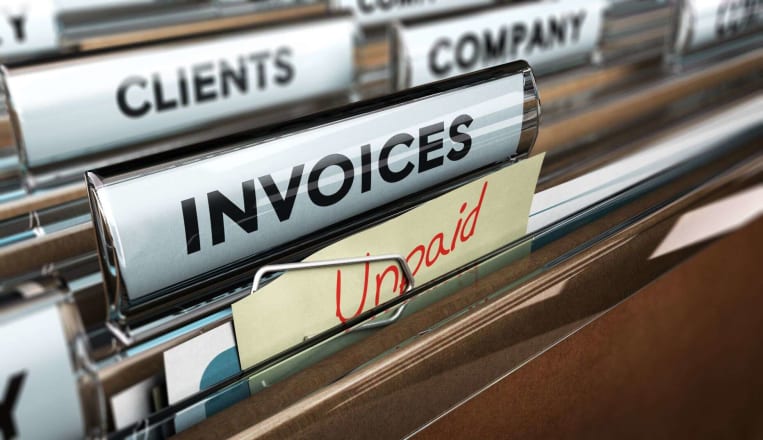
BBB Business Tip: A small business owner's guide to collecting unpaid debts

(Getty Images)
You depend on your clients for income when you run a small business or work as a freelancer. So what happens when a client doesn’t respond to payment reminders or refuses to pay? Small business owners have several options at their disposal to collect unpaid funds.
Getting outside help with collecting debts
If polite calls and reminders don’t work, it’s time to take more serious action.
Consider hiring a collection agency. Depending on how much you are owed and whether or not you are willing to take legal action, hiring a collection agency may be a good option. Collection agencies usually retain a hefty amount of what’s owed you (sometimes 50 percent or more). Still, they are pretty effective at getting the funds, and you will no longer need to be involved in the debt collection process You can focus your time and energy on clients who pay their bills on time. However, if you don’t want to give up such a large portion of your hard-earned money, it’s time to consider taking legal action.
Send an attorney’s letter. If your client still hasn’t paid their bill or you haven’t gotten a response, have an attorney draft a letter. You must pay for this, but the cost is usually reasonable. Plus, for some clients, just the thought of you taking legal measures can spur them to action and make them get in touch to work out a payment plan.
Take the client to small claims court. If the amount owed is small, you can take your client to small claims court for a quick and cost-effective judgment. Each state has specific requirements on how much a client can owe to be eligible for small claims court, so be sure to find the limit in your state. In Canada, it’s $35,000. You don’t need a lawyer to represent you in small claims court; you'll win if the client doesn’t show up by default.
Seek legal action in a superior court. If the amount you are owed exceeds the small claims court limit, you can take the client to a superior court. This option requires more time and is more expensive. You’ll also need a lawyer to represent you in court. Because of these factors, it’s important to do the math ahead of time and make sure you can afford to go to a superior court to collect your payment.
Take the client to arbitration. Another option, if the client owes you more than the legal limit for small claims court, is to take the client to arbitration. Arbitration is faster and cheaper than going to a superior court, but an arbitrator will make the final judgment instead of a judge hearing your case. The arbitrator’s decision can be enforced like a judge’s ruling.
Decide whether to continue a working relationship. Even if you can successfully collect your client’s overdue payment, take your time deciding whether to continue a working relationship with them. If you choose to keep working for your client, you should be ready to implement new rules, such as required prepayment or more frequent payment milestones. Have a legal plan in place ahead of time as well, and make sure your client knows what action you are prepared to take. Taking these measures will protect your business and make it more likely for you to get paid on time, every time.
For more information
Check out the latest news for small business owners on BBB's Biz HQ.
See BBB's Accreditation Standards, and learn how to become a BBB Accredited Business.
Still Need Assistance?
Contact Your Local BBB
Your local Better Business Bureau can assist you with finding businesses you can trust. Start With Trust®.
Additional Resources
Let BBB help you resolve problems with a business
Research and report on scams and fraud using BBB Scam Tracker
Learn more about the value of BBB Accreditation